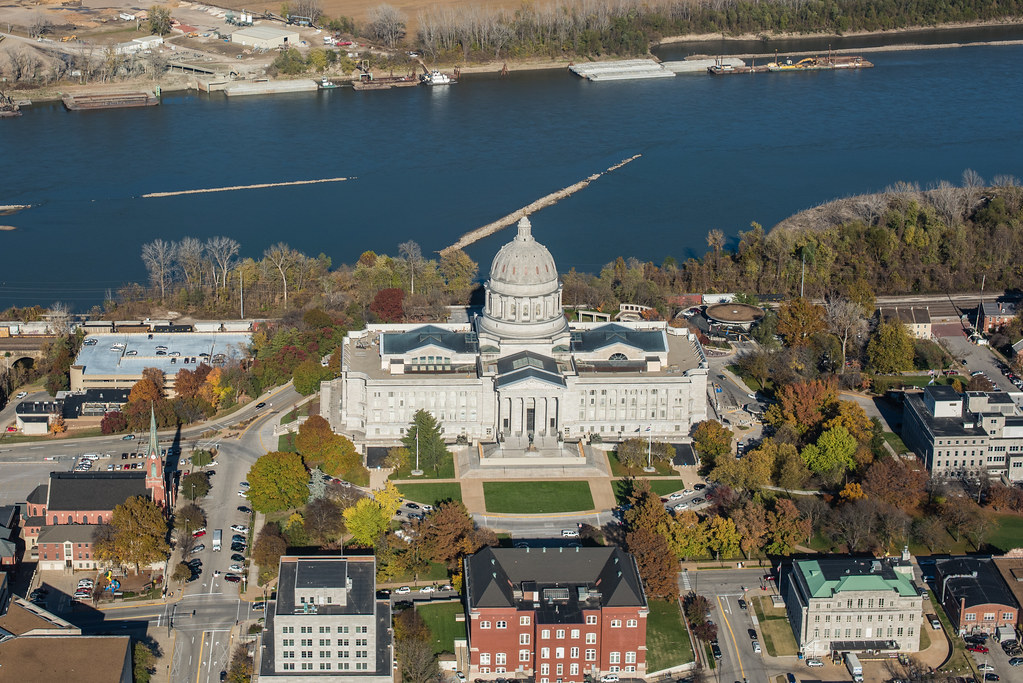
“D5968_CM_R2-99” by MoDOT Photos is licensed under CC BY-NC-SA 2.0
During a recent State House Budget Committee Hearing, Missouri’s Secretary of State, Jay Ashcroft, called for eliminating Missouri’s presidential preference primary (PPP), as this would save Missouri taxpayers $9.1 million every 4 years (each election cycle).
This is due to the fact that while primaries are run and financed by the state government, and therefore financed by taxes, caucuses are private events run and financed by the party itself. Mr. Ashcroft has claimed that the primary does not have any impact asserting, “You all know that we have a presidential primary, we spend $9.1 million of taxpayer money…And then we ignore the results and we have a caucus that actually chooses delegates to choose who goes to the national conventions.”
However, this is not true. While Missouri does have both caucuses and primaries in place, they serve different functions, and the primaries have a huge impact on the result of the national conventions.
For Democrats, 68 out of the 78 delegates assigned to Missouri are pledged delegates. This means that delegates do not vote for candidates based on their individual beliefs but are allocated to candidates. They are allocated proportionally to the results of the PPP, where the percentage of votes a candidate gets is proportional to the percentage of delegates they get.
For Republicans, all of their 54 Missouri delegates are pledged to presidential candidates based on the results of the primary. However, they follow a “winner-takes-most” allocation system, where if a candidate gets over 50 percent of the state-wide vote at the primary, that candidate gets all 54 delegates. If no candidate gets the majority, whichever candidate gets the most state-wide votes gets 30 delegates, and whoever gets the most votes in each of Missouri’s eight congressional districts gets three delegates.
Conversely, the purposes of caucuses are to elect individual delegates. Since the vast majority of delegates are pledged, and therefore their individual opinions on candidates do not matter, it is the caucuses that do not have a direct effect on which candidates become the presidential nominees.
Of course, just because a system is less impactful now does not mean it always has to be that way, and there is still the matter of the $9.1 million taxpayer dollars to consider.
In the 19th century, the caucus was how all states elected delegates. Since then, the national trend has been to move away from caucuses and toward primaries, which are usually viewed as more democratic.
In the early 1910s, Oregon became the first state to adopt primaries in order to diminish the influence of political bosses, who controlled nearly all of the delegates. The Democratic nomination of Hubert Humphrey over the popular Eugene McCarthy in the 1968 election was the major incitation that led to PPPs being used by the overwhelming majority of states.
The idea is that since the citizens’ preferred presidential candidate is made explicit through primaries, and the delegates are absolutely tied to the will of the citizens, presidential nominees will greater reflect what the citizens want as opposed to the selfish personal interests of the delegates. This, in turn, strengthens democracy.
In the current age, however, the few states that only use a caucus system, such as Iowa, run the caucuses in a way where the people who attend them are voting for their preferred presidential candidate, not individual delegates. Like primaries, delegates are then pledged to the candidates based on the results of the caucus. So really, the salient feature was not whether a state had a primary or caucus, but whether delegates were pledged based on the will of the citizens.
Another argument for primaries is that they garner greater voter turnout. Thirty-nine percent of Missouri’s registered voters turned out for the 2016 primary, as opposed to 16 percent of registered voters at the 2016 Iowa caucus.
The difference in voter turnout is accredited to the much larger time commitment required to attend a caucus, which can take hours. This is time that many citizens can not afford to lose or are simply not interested in giving.
Along with lower turnout, the people who do attend caucuses tend to already be very politically engaged and opinionated, leading to more polarized candidates being nominated.
There is also a question about whether party officials can properly run elections, as opposed to better-trained state officials. This question has been emphasized after the mishandling of the 2020 Iowa caucus.
Still, there are arguments to be made that caucuses lead to more thoughtful and informed decisions that come from discussion and debate. The desire for educated voters and a sense of community leads many to believe that rather than a primary system, reforms should be made to the caucus system.
The issue of whether Missouri should have a presidential preference primary, and whether it is a worthwhile investment in democracy, can be greatly debated. What can be said for certain is that getting rid of the primary would not be a consequence-free choice, as implied by Ashcroft, and there would be great changes to the structure of how we elect delegates for the national conventions.
If state legislators act on Ashcroft’s call, it will not affect the 2020 Missouri PPP, which will be held March 10 for both Democrats and Republicans.
The caucuses to then elect delegates will be April 4 at 10 a.m. for Republicans and April 6 at 7:30 p.m. for Democrats.
